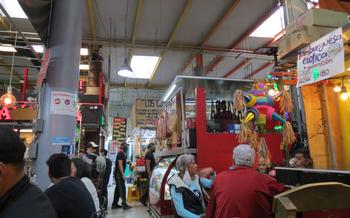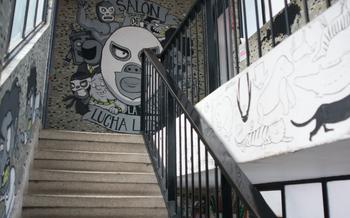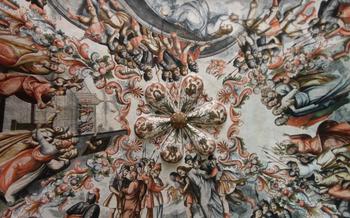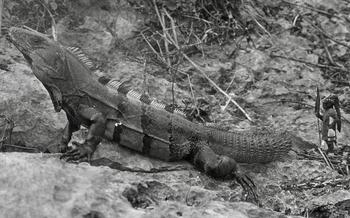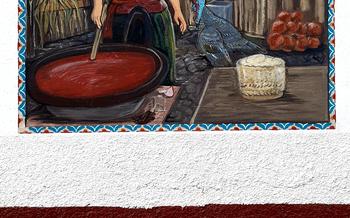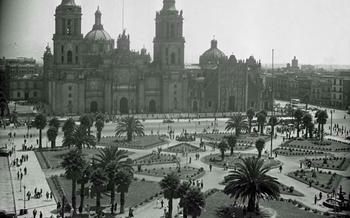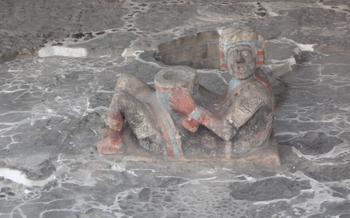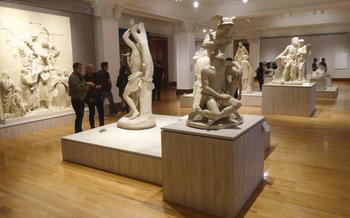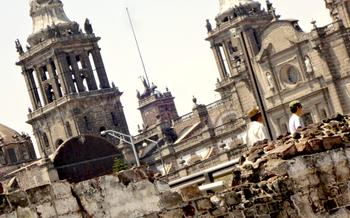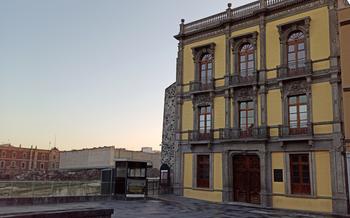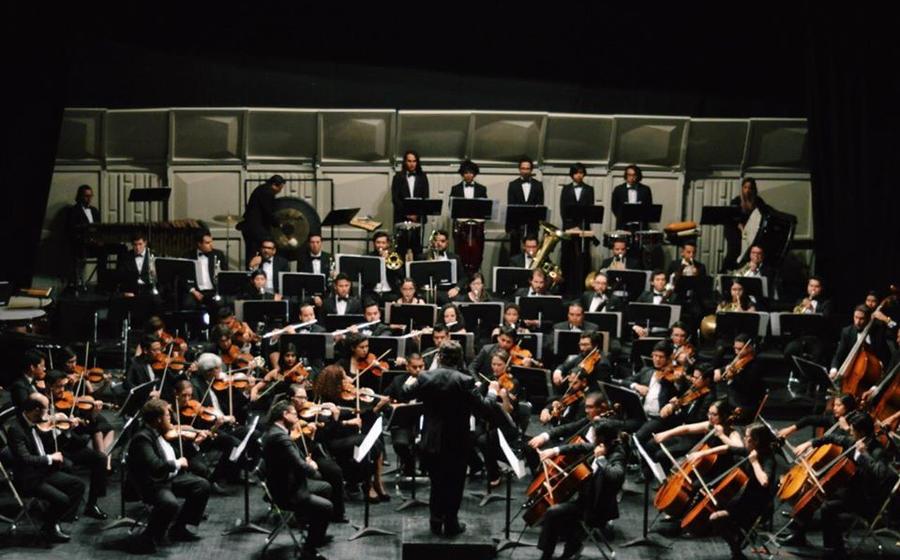
Museo Zacatecano de Ciencias Forenses
- Museo Zacatecano de Ciencias Forenses: A Journey into the Science of Crime Investigation
- Exploring the History of Forensics in Mexico:
- Unraveling the Mysteries of Forensic Science
- Interactive Exhibits for a Hands-On Experience
- The Crime Scene Investigation Experience
- Workshops and Educational Programs for All Ages
- The Hall of Fame: Honoring Forensic Luminaries
- Exploring the Museum's Unique Collections
- The Art of Forensic Sketching and Facial Reconstruction
- The DNA Laboratory: Unraveling the Genetic Code
- The Fingerprint Laboratory: Unique Identifiers
- The Toxicology Laboratory: Analyzing Substances for Clues
Museo Zacatecano de Ciencias Forenses: A Journey into the Science of Crime Investigation
The Museo Zacatecano de Ciencias Forenses is a fascinating destination for anyone interested in the intricate world of crime investigation. This remarkable museum is dedicated to showcasing the latest advancements in forensic science, highlighting the crucial role it plays in promoting scientific investigation and public awareness.
-
Promoting Scientific Investigation: The museum serves as a platform for scientific exploration, encouraging visitors to engage in hands-on activities, explore interactive displays, and delve into the intricacies of forensic techniques. Through these immersive experiences, visitors gain a deeper understanding of the scientific principles that underpin forensic investigations.
-
Raising Public Awareness: The museum plays a vital role in raising public awareness about the significance of forensic science in the pursuit of justice. By shedding light on the methodologies employed by forensic experts, the museum helps dispel common misconceptions and fosters a greater appreciation for the scientific rigor involved in crime investigation.
-
Unique Exhibits Highlight Forensic Techniques: The Museo Zacatecano de Ciencias Forenses boasts a collection of unique exhibits that showcase the diverse range of forensic techniques used to solve crimes. Visitors can explore interactive displays on DNA analysis, ballistics, fingerprint identification, and more, gaining insights into the methodologies employed by forensic scientists.
Exploring the History of Forensics in Mexico:
The Museo Zacatecano de Ciencias Forenses honors the rich legacy of forensic science in Mexico. Mexican forensic scientists have made significant contributions to the field, developing innovative techniques and methodologies that have been adopted worldwide. Visitors can learn about these pioneers and their groundbreaking work through interactive exhibits and historical artifacts.
The museum showcases the evolution of forensic practices in Mexico, from the early days of crime scene investigation to the use of cutting-edge technology. Notable cases that shaped the history of forensics in the country are highlighted, providing insights into the challenges and triumphs of forensic scientists. The museum's collection of historical documents, instruments, and case files offers a glimpse into the past and underscores the importance of preserving this valuable legacy.
Unraveling the Mysteries of Forensic Science
Forensic science plays a crucial role in criminal investigations and court proceedings by providing scientific evidence that can be used to determine the facts of a case. The Museo Zacatecano de Ciencias Forenses offers visitors a unique opportunity to learn about the basic principles of forensic science, the various disciplines within the field, and how forensic evidence is collected, processed, and interpreted.
Visitors can explore interactive displays that explain the science behind fingerprinting, DNA analysis, ballistics, and other forensic techniques. They can also learn about the history of forensic science and how it has evolved over time. The museum also features exhibits on famous forensic cases that have shaped the history of the field, showcasing the crucial role of forensic science in solving crimes and bringing criminals to justice.
By providing a hands-on experience and interactive displays, the Museo Zacatecano de Ciencias Forenses makes learning about forensic science engaging and accessible to people of all ages. Visitors can leave the museum with a deeper understanding of the importance of forensic science and its impact on the criminal justice system.
Interactive Exhibits for a Hands-On Experience
The Museo Zacatecano de Ciencias Forenses offers a range of interactive exhibits that allow visitors to simulate forensic techniques and gain a deeper understanding of the field. Microscope stations are set up for visitors to examine evidence up close, such as fingerprints, hair fibers, and bloodstains. Virtual reality experiences provide an immersive crime-solving environment, where visitors can step into a virtual crime scene and use their forensic skills to solve the case. The museum also hosts workshops and educational programs for students and the public, where they can learn about different aspects of forensic science and even try their hand at conducting their own experiments. These interactive exhibits and programs make the museum an engaging and educational experience for visitors of all ages, fostering a greater appreciation for the role of forensic science in our society.
The Crime Scene Investigation Experience
Step into the shoes of a forensic investigator as you explore the museum's mock crime scenes. These realistic setups challenge you to put your detective skills to the test. Learn how to properly document and collect evidence, using various tools and techniques. Understand the importance of preserving the integrity of a crime scene and how every piece of evidence can contribute to solving a case. Experience the thrill of piecing together the puzzle and discovering the truth behind the crime.
Workshops and Educational Programs for All Ages
The Museo Zacatecano de Ciencias Forenses recognizes the importance of promoting interest in forensic science among all age groups. To this end, the museum offers a wide range of educational workshops and programs designed to engage students, teachers, and the general public. These programs aim to inspire the next generation of forensic professionals and cultivate a deeper understanding of the field among the community.
For students, the museum provides interactive workshops that introduce them to the fundamental principles of forensic science and various forensic disciplines. These workshops cover topics such as DNA analysis, fingerprint identification, and crime scene investigation. The museum also organizes summer camps and outreach programs to encourage students to pursue careers in STEM fields.
Law enforcement personnel and forensic professionals can participate in specialized courses and workshops to enhance their skills and knowledge in various forensic disciplines. These programs are designed to keep participants up-to-date with the latest advancements in forensic science and provide practical training to improve their investigative techniques.
Additionally, the museum offers public lectures and seminars on current topics in forensics to engage the general public and foster a dialogue between forensic scientists and the community. These events provide an excellent opportunity for individuals to learn about the latest developments in the field and gain insights into the work of forensic professionals.
The Hall of Fame: Honoring Forensic Luminaries
The Museo Zacatecano de Ciencias Forenses pays homage to the remarkable contributions of renowned forensic scientists through its Hall of Fame. This exclusive section of the museum celebrates the pioneers and innovators who have shaped the field of forensics, leaving an indelible mark on the pursuit of justice.
Interactive displays showcase the groundbreaking work and achievements of these luminaries, highlighting their expertise in various forensic disciplines. Visitors can explore historical artifacts, personal belongings, and detailed accounts of their groundbreaking discoveries. The Hall of Fame serves as an inspiration for aspiring forensic professionals, demonstrating the impact that dedication and perseverance can have on the field.
Exploring the Museum's Unique Collections
The Museo Zacatecano de Ciencias Forenses houses an extensive collection of forensic artifacts and evidence that provide a fascinating glimpse into the history and practice of forensic science. Visitors can examine rare books and manuscripts that document the evolution of forensic techniques, as well as historical instruments and tools used in forensic investigations.
The museum's collection includes a variety of items related to forensic pathology, such as autopsy reports, photographs, and specimens. Visitors can also view a collection of weapons, including firearms, knives, and blunt objects, that have been used in crimes. The museum also has a collection of trace evidence, such as fingerprints, hair, and fibers, that can be used to identify suspects and reconstruct crime scenes.
One of the most interesting exhibits in the museum is a collection of crime scene photographs. These photographs provide a glimpse into the work of forensic investigators and the challenges they face in collecting and documenting evidence. The museum also has a collection of forensic art, including sketches and paintings that were created to help identify suspects or reconstruct crime scenes.
The Art of Forensic Sketching and Facial Reconstruction
Forensic sketching plays a crucial role in identifying suspects and victims by creating composite sketches based on eyewitness descriptions. At the Museo Zacatecano de Ciencias Forenses, visitors can delve into the art of forensic sketching and facial reconstruction. Interactive stations allow them to try their hand at creating composite sketches using techniques employed by forensic artists. The museum also showcases the work of renowned forensic sketch artists, providing insights into the process and accuracy of this specialized field.
Additionally, the museum explores the fascinating realm of facial reconstruction, a technique used to recreate the faces of unidentified individuals or reconstruct damaged facial features. Visitors can learn about the scientific methods and artistic skills involved in this process, gaining a deeper appreciation for the meticulous work that goes into facial reconstruction.
The DNA Laboratory: Unraveling the Genetic Code
Journey into the realm of genetics and witness the captivating power of DNA analysis at the Museo Zacatecano de Ciencias Forenses. Embark on an interactive voyage where you'll discover the intricate processes of DNA extraction, amplification, and profiling, unraveling the secrets held within the genetic code. Simulate real-life DNA analysis scenarios, piecing together the puzzle of evidence to determine identities and establish connections. Understand the ethical and legal implications of DNA testing, gaining insights into the delicate balance between scientific advancements and individual privacy. Prepare to be captivated as you delve into the fascinating world of forensic genetics, where the smallest fragments of DNA hold the power to solve mysteries and bring justice to light.
The Fingerprint Laboratory: Unique Identifiers
The Museo Zacatecano de Ciencias Forenses houses a fully-equipped fingerprint laboratory, providing visitors with an in-depth look into the world of fingerprint analysis and its crucial role in criminal investigations. Here, you'll learn how unique fingerprints are, and how they can be used to identify individuals and solve crimes.
Experts at the Fingerprint Laboratory will demonstrate the various techniques used to collect and classify fingerprints, including ink and digital methods. You'll get to see how fingerprints are compared and matched to identify suspects and link them to crime scenes.
Interactive displays allow you to explore the history of fingerprint analysis and learn about famous cases where fingerprints played a pivotal role in solving crimes. You can also test your own skills at fingerprint identification and see how you fare against the experts.
Furthermore, the laboratory highlights the importance of fingerprint analysis in legal proceedings, showcasing how fingerprint evidence can be used to convict criminals and exonerate the innocent.
The Toxicology Laboratory: Analyzing Substances for Clues
The Toxicology Laboratory at the Museo Zacatecano de Ciencias Forenses delves into the intricate world of toxicology, a crucial field in forensic investigations. Here, visitors gain insights into how toxic substances are analyzed to uncover valuable clues in criminal cases. Interactive displays shed light on the techniques used to detect and measure drugs, alcohol, and other toxins in bodily fluids and tissues. Visitors can witness demonstrations of drug and alcohol testing procedures, and learn about the significance of toxicology in determining intoxication and impairment. The laboratory also highlights the role of toxicology in forensic pathology, where it aids in determining the cause of death in cases involving poisoning or drug overdoses. Through these exhibits, the museum emphasizes the importance of toxicology in ensuring justice and protecting public health.
